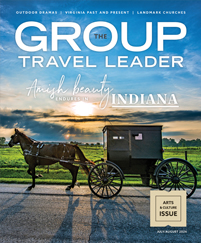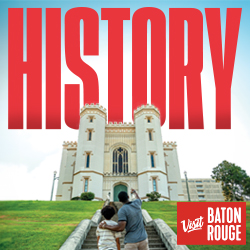Churches are often at the heart of their communities. The same could be said during the Civil Rights Movement when they were the sites of mass meetings and historic events. Today, groups can remember significant events at these sanctuaries.
16th Street Baptist Church
Birmingham, Alabama
Addie Mae Collins, Denise McNair, Carole Robertson, Cynthia Wesley: Their faces are memorialized in the bronze statue “Four Spirits” across the street from the 16th Street Baptist Church in Birmingham, Alabama, where the girls were killed September 15, 1963. They were wearing their Sunday best and preparing to lead the congregation’s 11 a.m. adult service when the Ku Klux Klan bombed the building.
The KKK targeted the church because it had become a hub for the community’s civil rights mass meetings and rallies in the early 1960s. The girls’ murders became a tragic rallying cry for the civil rights movement.
Ever since its founding in 1873 as the first black church in Birmingham, the 16th Street Baptist Church has played a major role in the city’s black community, and its prominence and downtown location across from Kelly Ingram Park made it a natural gathering spot for organizers. The church’s recognizable brick building, with its twin domed towers, was completed in 1911 and is open for tours. Guided tours last about an hour and are available Tuesdays through Fridays and by appointment on Saturdays. Groups should schedule tours in advance.
Ebenezer Baptist Church
Atlanta
Martin Luther King Jr. grew up in the pews of Ebenezer Baptist Church in Atlanta, where his father was pastor. King was baptized there as a baby, and his funeral was held there after his assassination in 1968. Between the bookends of King’s remarkable life, the church was the setting of some of his most significant sermons and milestones.
King delivered his first sermon at the church’s pulpit in 1947, and the congregation voted to license him as a minister shortly afterward. King was ordained in February 1948.
King joined his father as co-pastor at Ebenezer in November 1959 in a move to be closer to the Atlanta headquarters of the Southern Christian Leadership Conference.
The church is part of the Martin Luther King Jr. National Historic Site, and in 2001, the National Park Service began a two-phase restoration of the 1922 brick church in the Sweet Auburn neighborhood. Work included structural repairs and updated infrastructure, but the project also restored the appearance of the Heritage Sanctuary and fellowship hall to the years when King served as co-pastor with his father, from 1960 to 1968; that work included preserving the stained-glass windows and restoring the pipe organ. The church’s modern space, the Horizon Sanctuary, was completed in 1999.
The congregation welcomes visitors every Sunday both in person and online through its virtual Ebenezer Everywhere. The Heritage Sanctuary is open for tours daily.










